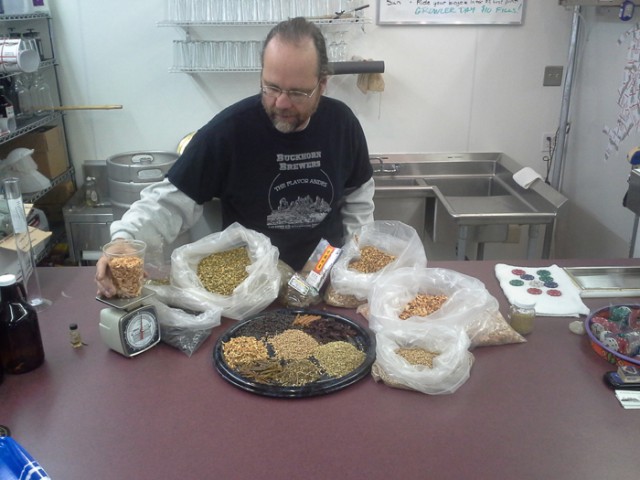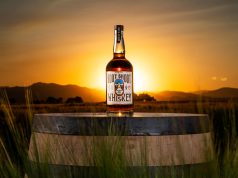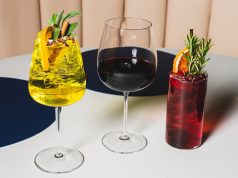
Ancient herbal ales get a revival
Everything old is new again, including ancient herbal beers regaining popularity in the craft beer world after about a 250-year hiatus. They’re called gruits, which refers to a mixture of oldfashioned herbs and spices used to bitter and flavor beer prior to the prevalence of hops (although hops began being used in gruits around the second century).
Several local breweries recently concocted their own spins on this style of beer, employing unique blends of herbs and spices.
Loveland-based Buckhorn Brewers adds nontraditional ingredients to no less than half of their beers on tap, using the likes of marshmallow root, licorice root, chamomile and Indonesian sugar, just to name a few.
Head brewer David Currie credits Belgian beers with his fascination for making spiced beers, as Abbey-style ales often require dark candi-sugars and wit beers contain orange peel and coriander.
“Well gosh, if you can use this, why not that?” Currie asks. “I start with the malt base first and try to think about what sugar character or what you’re tasting in the malt base. Then from there I take a run at it.”
When working with unfamiliar spices, Currie makes teas and blends them with the fermented beer.
Lauren Salazar, the wood cellar and specialty brand manager at New Belgium, describes a similar process for the Lips of Faith series beer Gruit.
“We just sat around and made a bunch of teas to find out really what the flavor was of each of the ingredients,” she says.
Descriptions of the ingredients in New Belgium’s Gruit are similar to more familiar hoppy beers. Salazar describes bog myrtle as having a “sappy, resin flavor.” Other ingredients contribute more than just bitterness such as horehound which adds “sweetness” and yarrow which contains a “dry floral aroma.”
Although the brewers describe the experimental process and brewing of these beers with great gusto, there are some inherent issues when trying to acquire specialty herbs and spices. For a smaller brewery like Buckhorn, they can procure herbs over the Internet and sometimes even locally. However for New Belgium, who brewed Gruit on a 200-barrel system (that’s 6,300 gallons if you’re wondering), items such as bog myrtle are hard to come by.
However Salazar predicts those obstacles aren’t likely to deter future brewers.
“Every brewery is going to make one,” she says. “The herbs are going to become a signature of their portfolio.”
Salazar says it’s similar to branding the particular blend of hops each brewery uses in their pale ales.
Two Boulder breweries are already doing just that, Upslope Brewing with their Summer Herbal Ale and BRU Handbuilt Ales, which uses exotic sugars and spices in a majority of their beers.
“When I get a killer ingredient, whether it’s some amazing local fruit, funky unique sugar, or some spice that is rarely used in brewing, that’s how I come up with the beer,” says Ian Clark, BRU’s head brewer.
Respond: [email protected]














